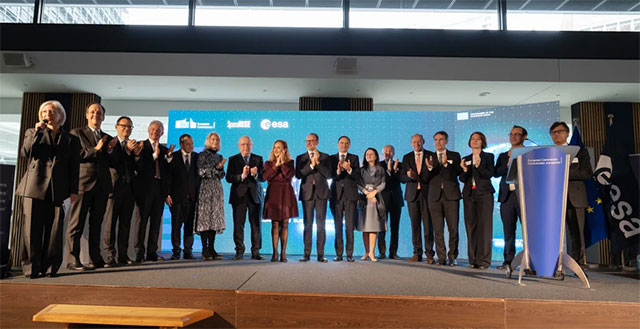Europe develops satellite internet system to replace Starlink
The European Union (EU) and the European Space Agency (ESA) have just announced a project called IRIS² (short for Resilience, Interconnectivity, and Security by Satellite), with the aim of building and providing a satellite-based internet service that essentially operates in a similar way to Starlink, and at the same time aims to compete directly with the service of billionaire Elon Musk. This project has been approved for an estimated investment budget of up to 10.6 billion euros ($11.1 billion).
The EU's IRIS² initiative aims to create a secure and independent satellite communications network for Europe over the next 12 years. The programme is a collaboration between the EU, ESA and a private group called SpaceRISE. The project aims to build a multi-orbital network of nearly 300 satellites, competing directly with US satellite internet providers such as Elon Musk's Starlink and Amazon's Kuiper project. The development and launch of the satellites are being undertaken by leading aerospace companies and organisations including SES, Eutelsat, Hispasat, Airbus and Thales.
IRIS² will enhance existing EU systems such as Copernicus and Galileo, providing more accurate navigation and valuable Earth data. Most of the satellite capacity will be used for commercial broadband services, but a significant portion will also be allocated to focus on government communications areas such as security and crisis management.
IRIS² will provide secure communications for military, defense, and diplomatic purposes. Surveillance, connectivity in disaster areas, and commercial broadband access are other potential applications for the system.

The IRIS² satellites will operate in low and medium Earth orbit, with the first launch scheduled for 2029. Funding for the project will come from a variety of sources: the EU will contribute €6 billion ($6.3 billion), the ESA will provide €550 million ($578 million), and the private sector will contribute more than €4 billion ($4.2 billion). The satellite internet system is being developed as a public-private partnership, serving both governments and private customers.
The creation of a robust, independent European satellite network is expected to improve internet access, especially in remote or underserved areas. As more companies enter the IRIS² satellite internet market, EU citizens could enjoy affordable prices and better service quality.
You should read it
- ★ Starlink satellite accused of 'can be deadly'
- ★ Elon Musk's satellite Internet device was hacked with a homemade device for $ 25
- ★ Starlink satellite internet connects to hospitals in the Gaza Strip
- ★ Elon Musk posted a Twitter post, showing off the Internet provided by the Starlink satellite system was working
- ★ Elon Musk launches Starlink satellite Internet service in Indonesia